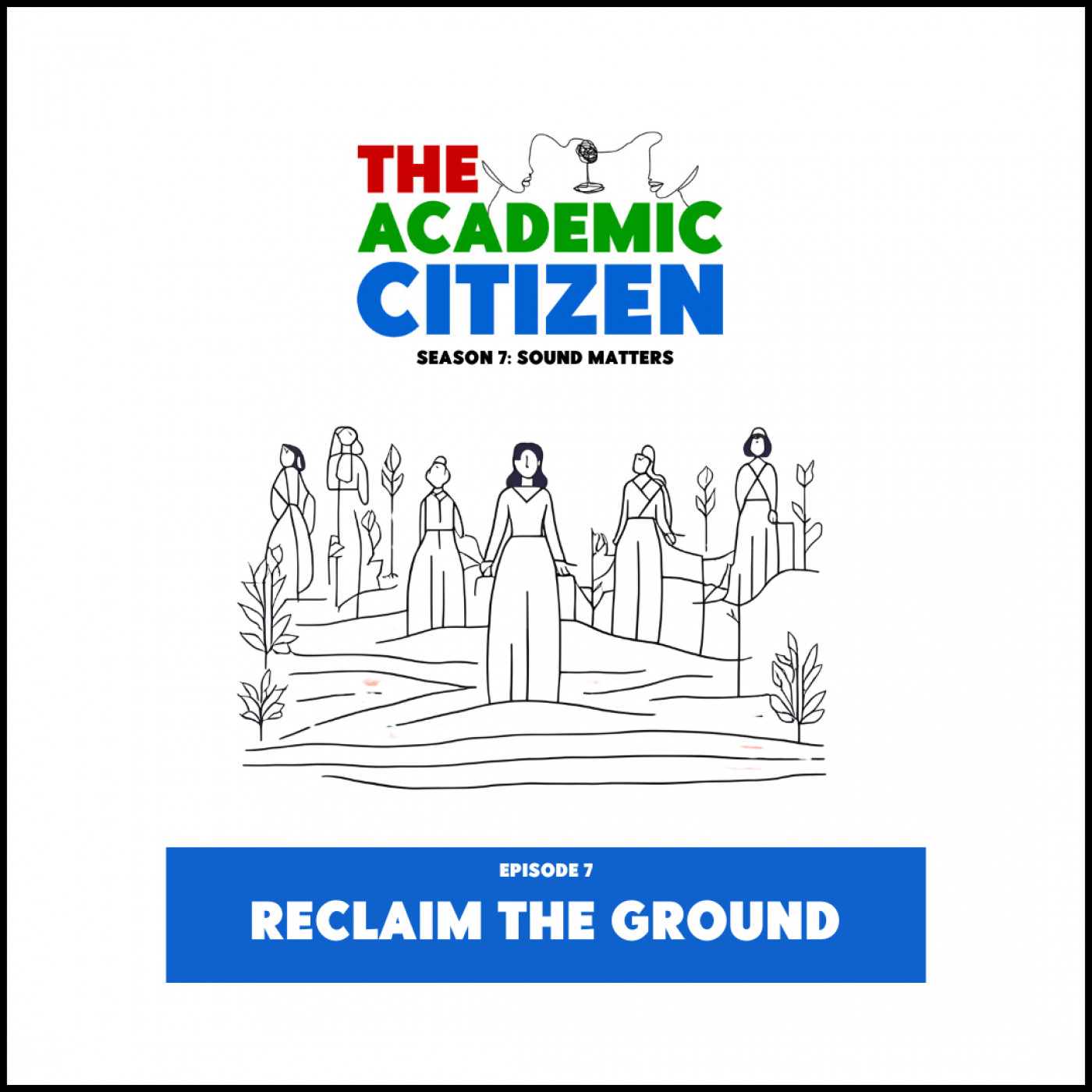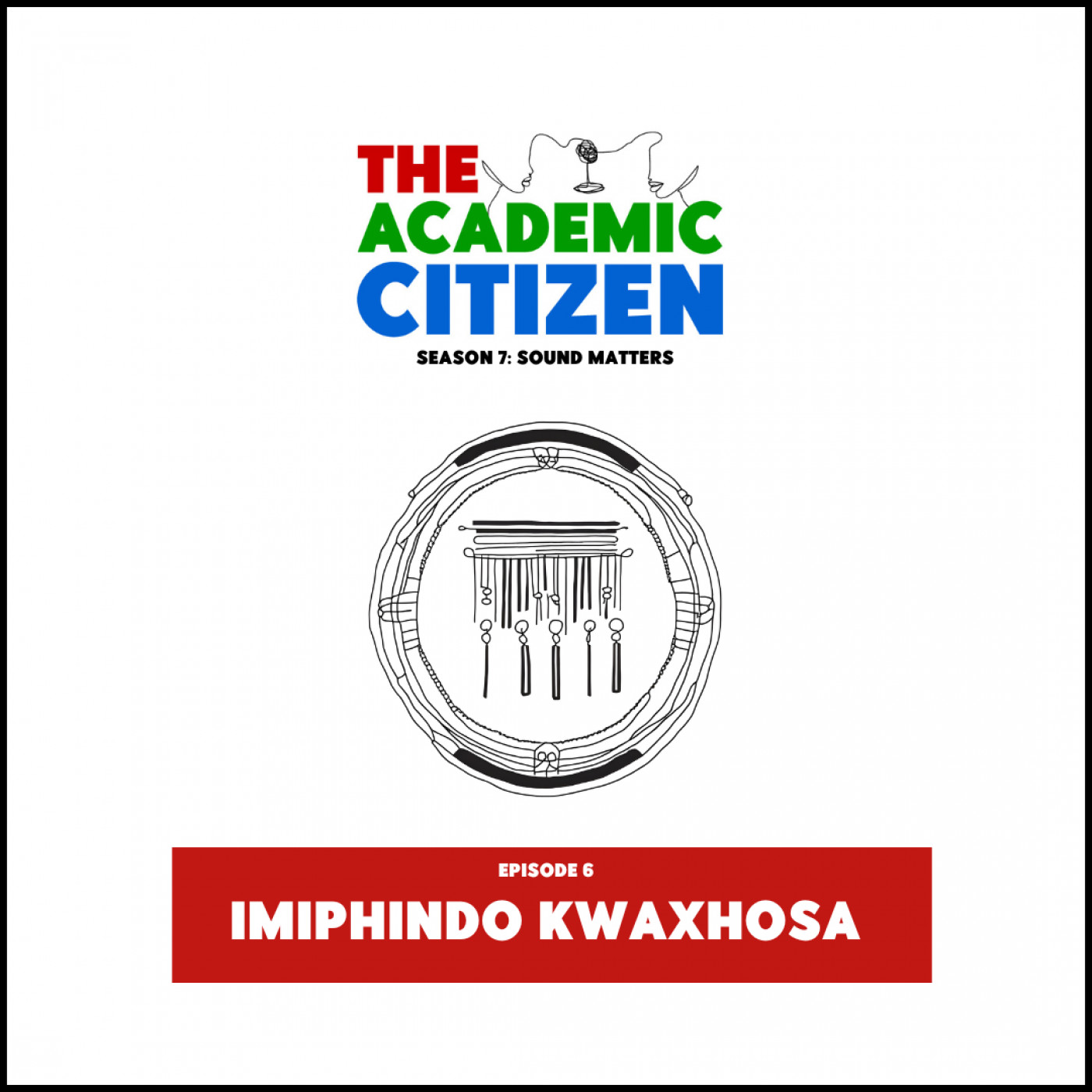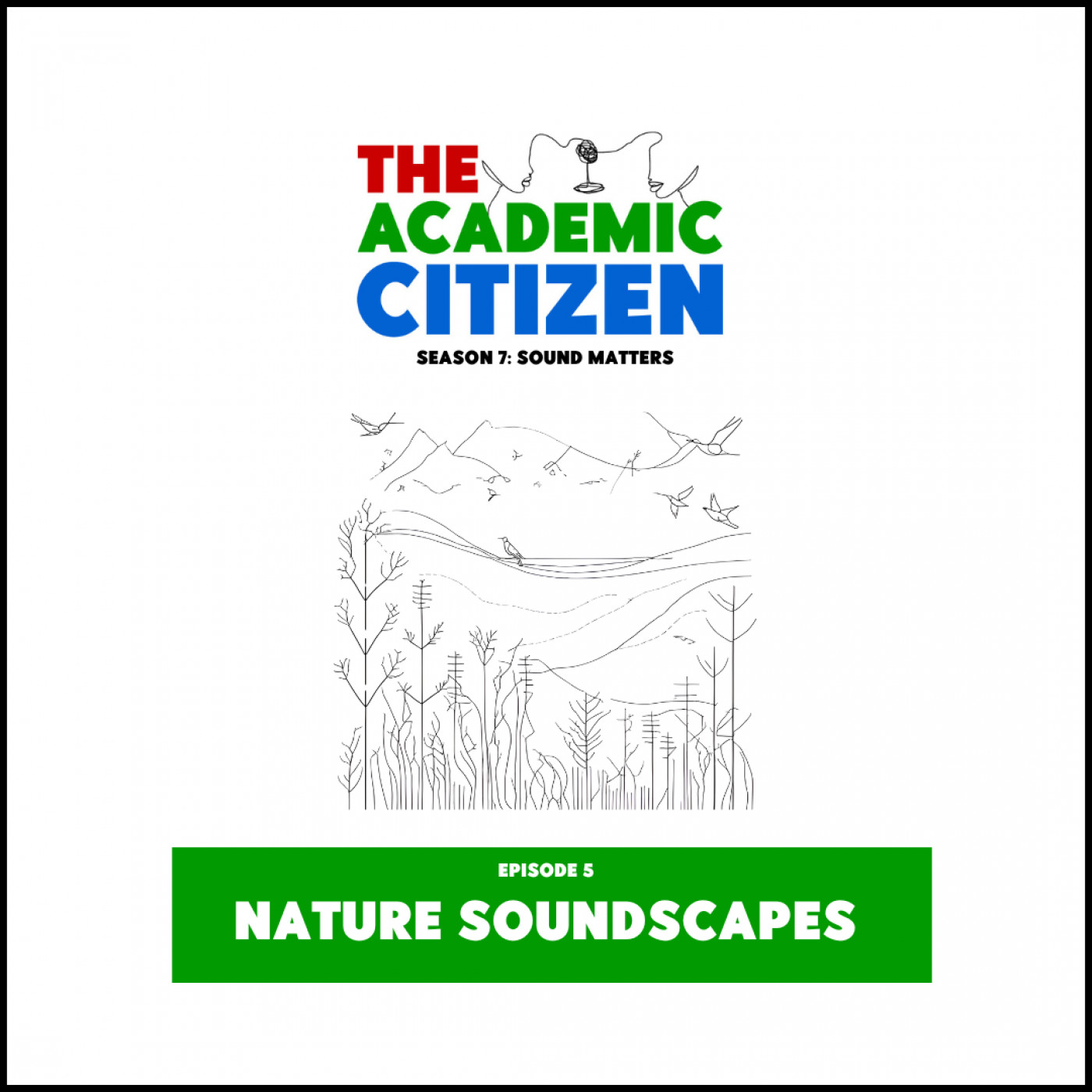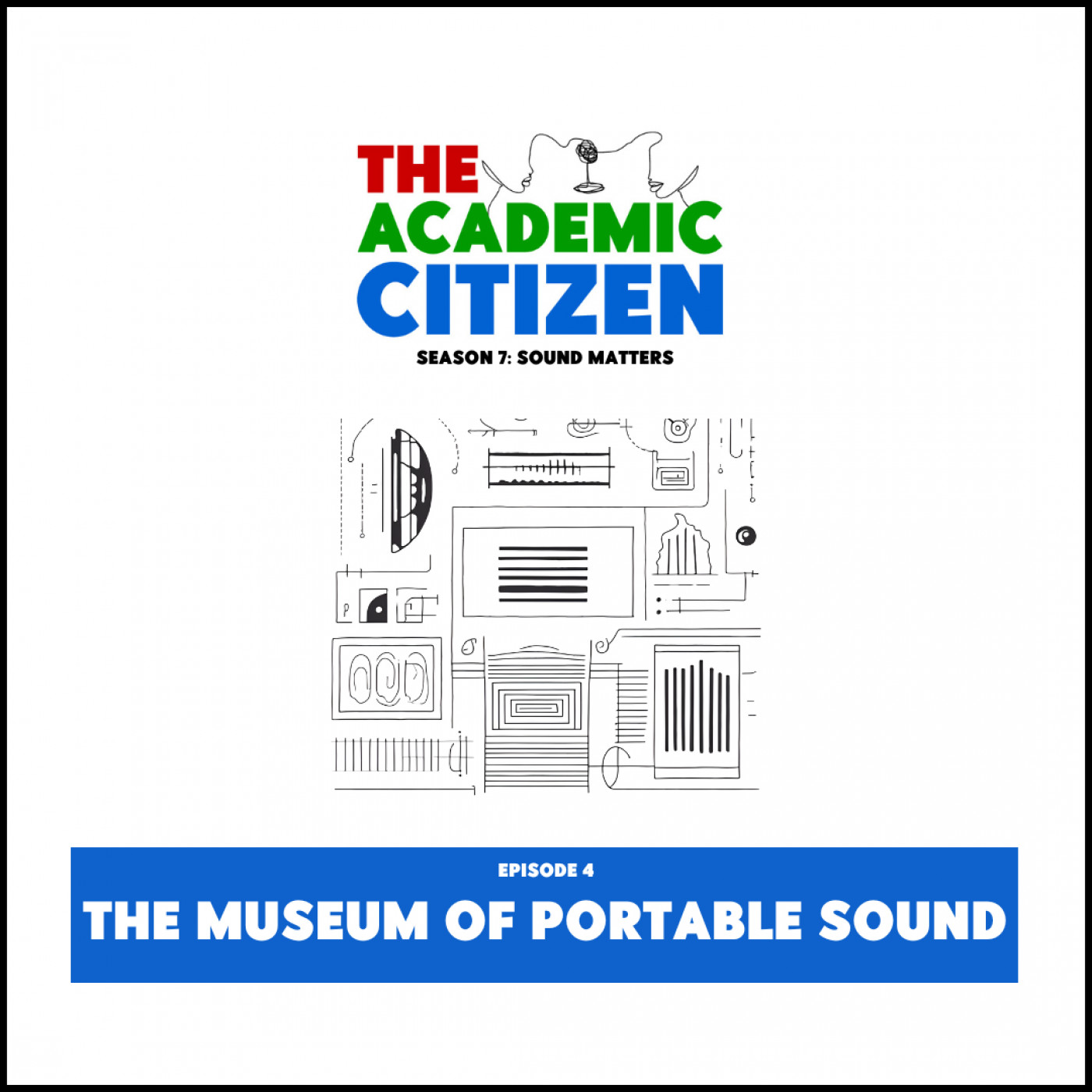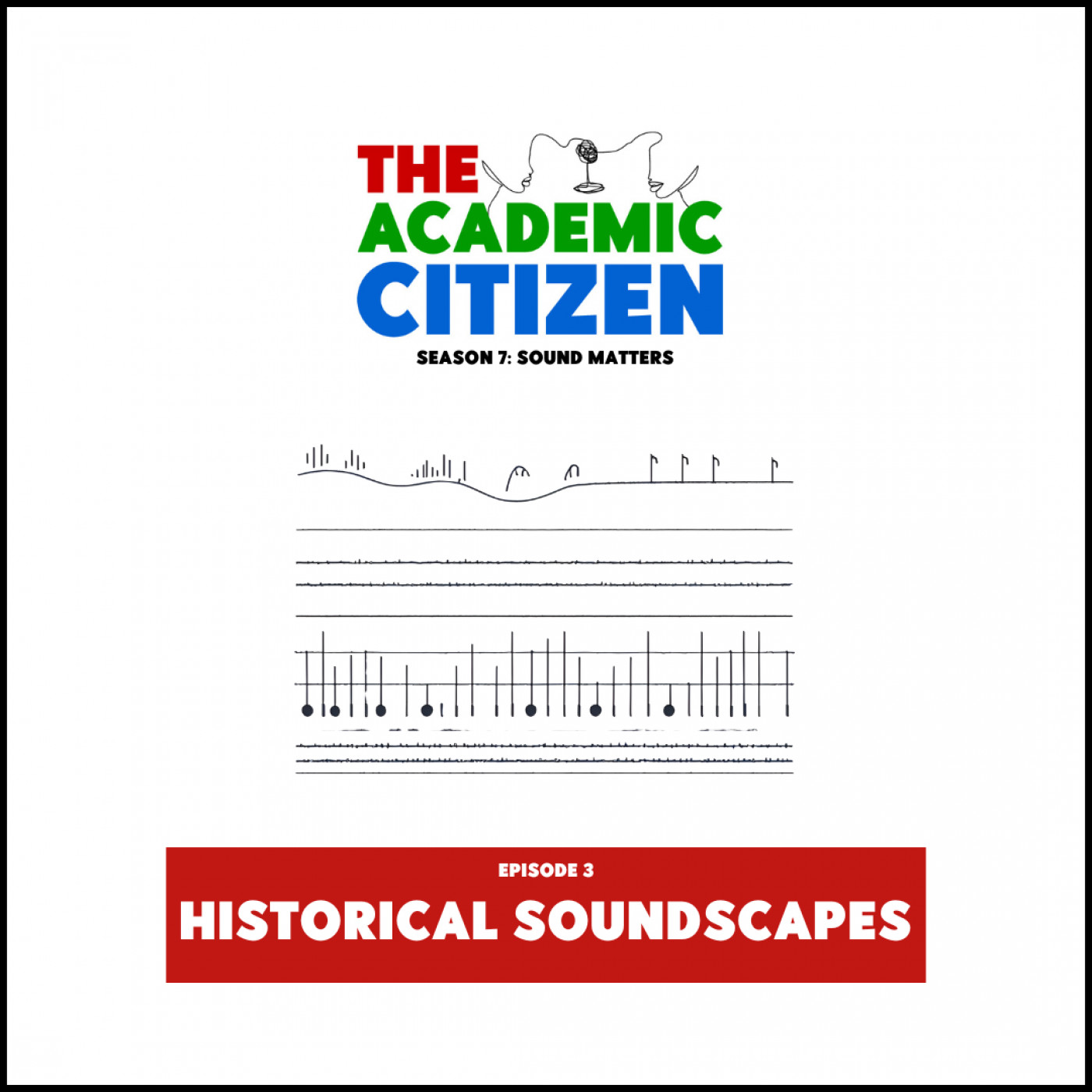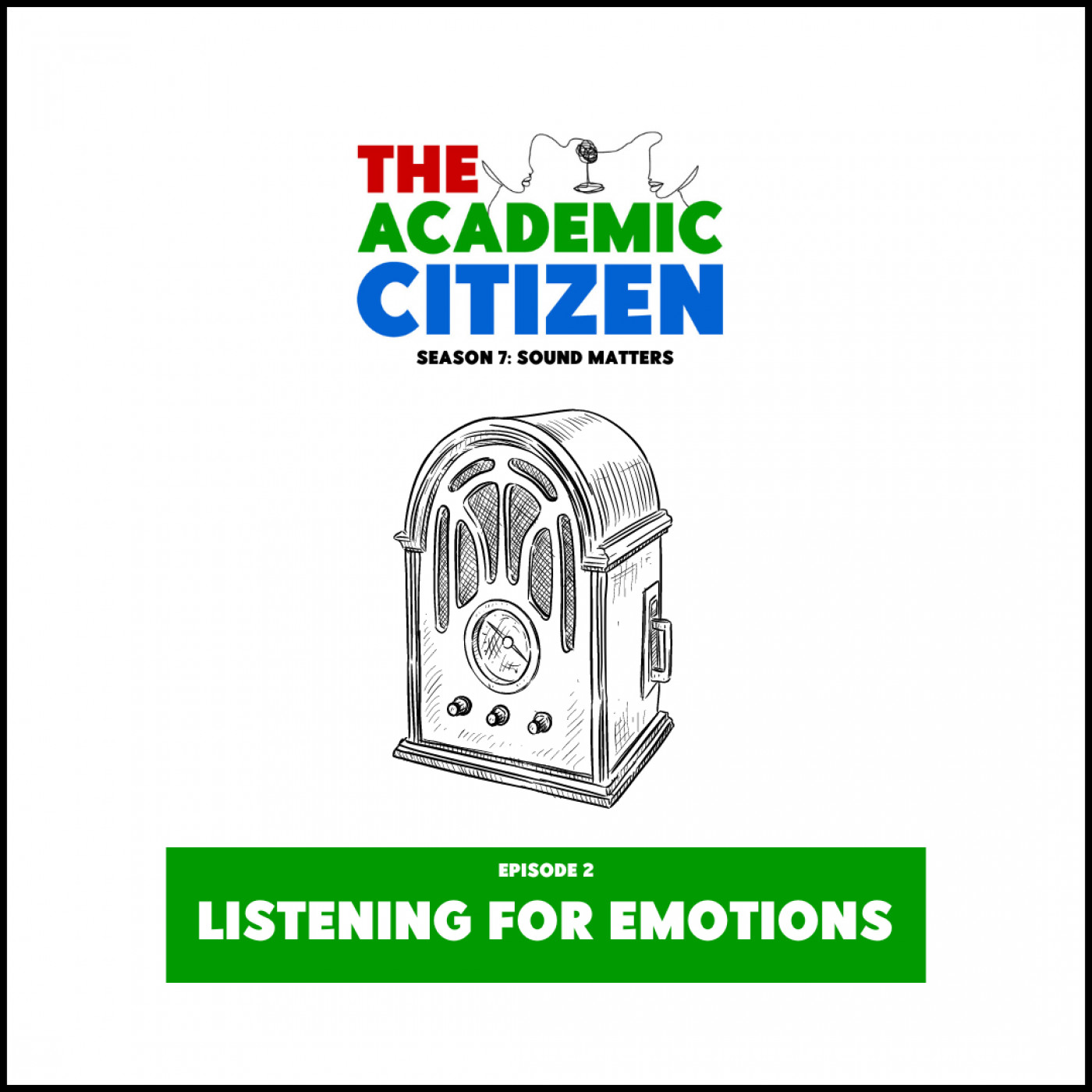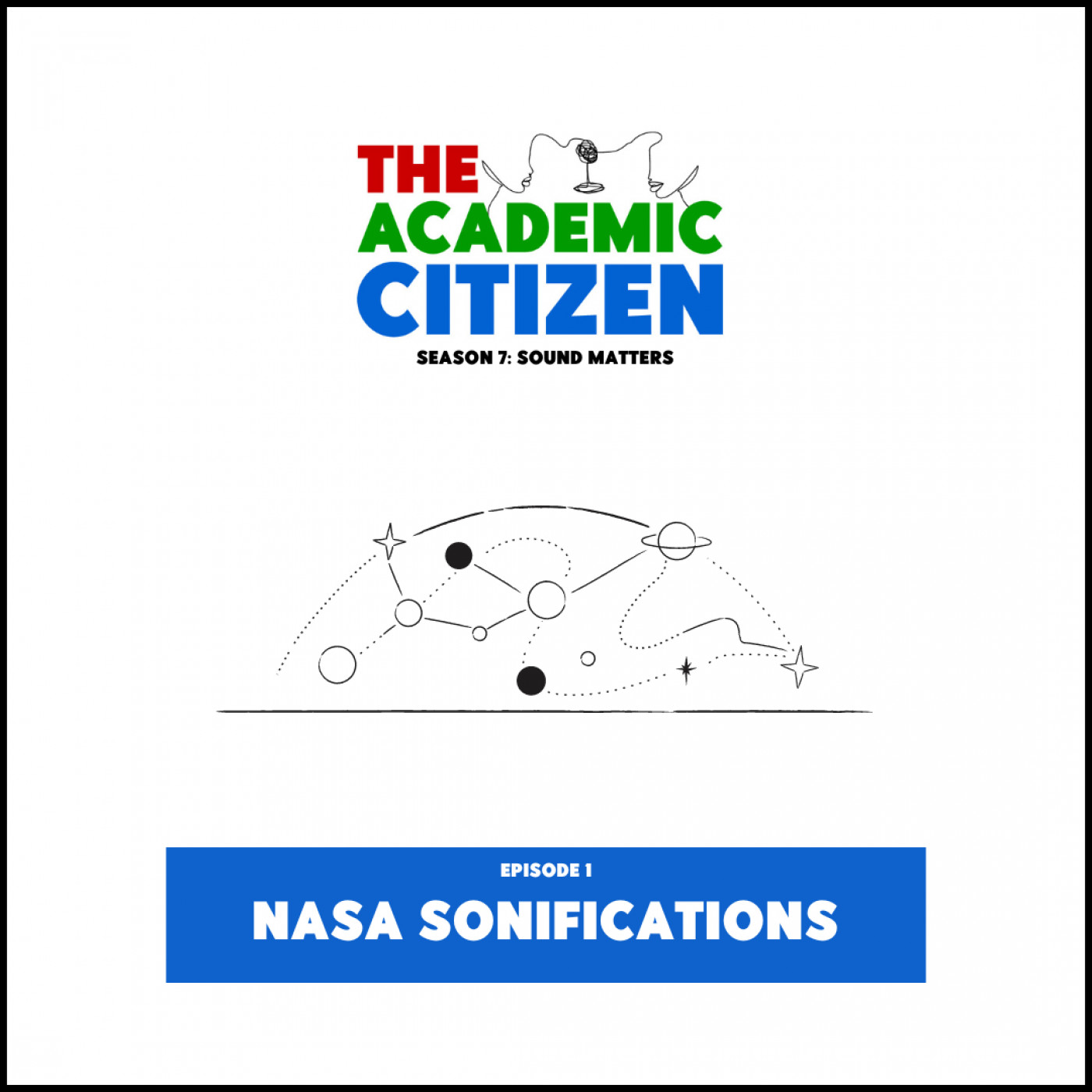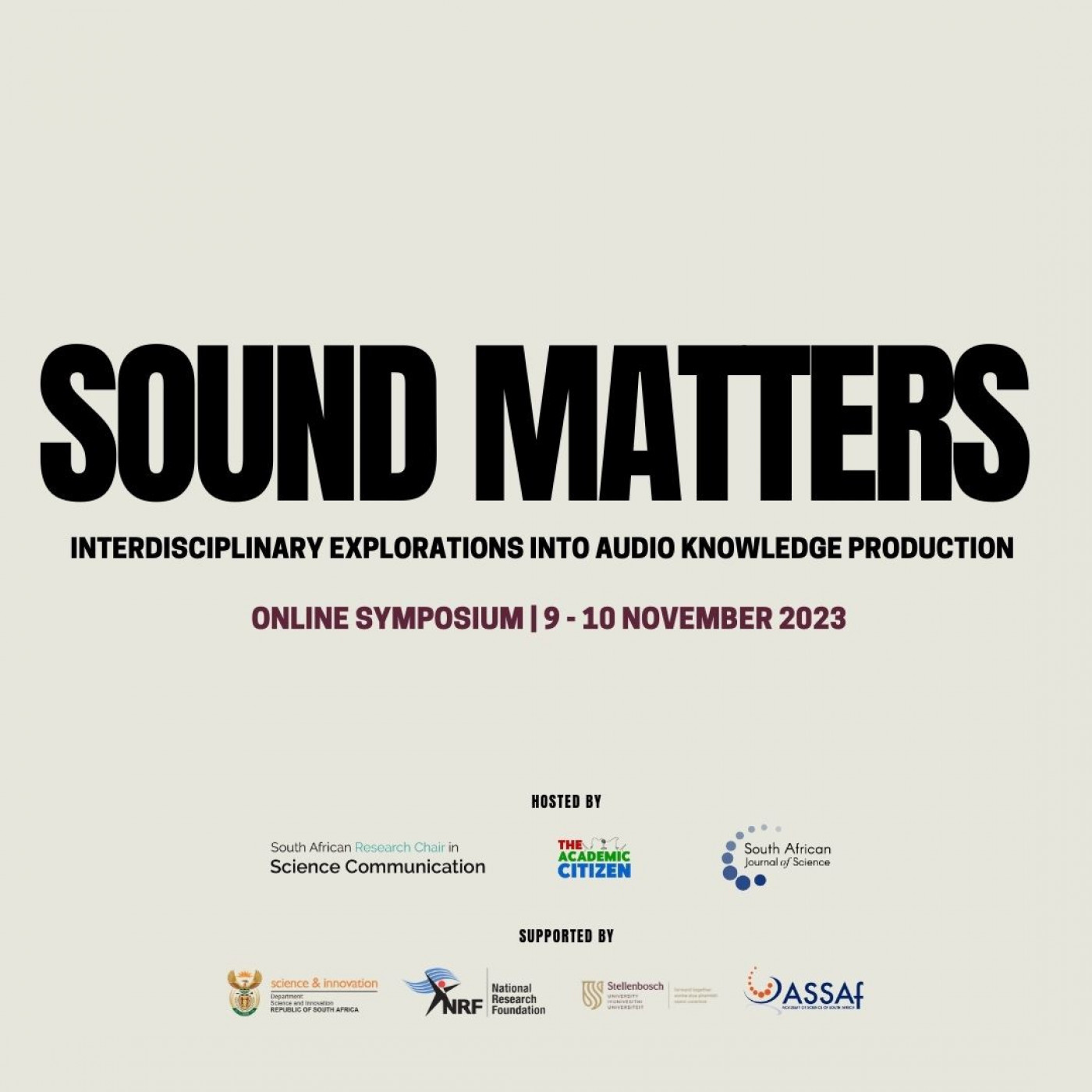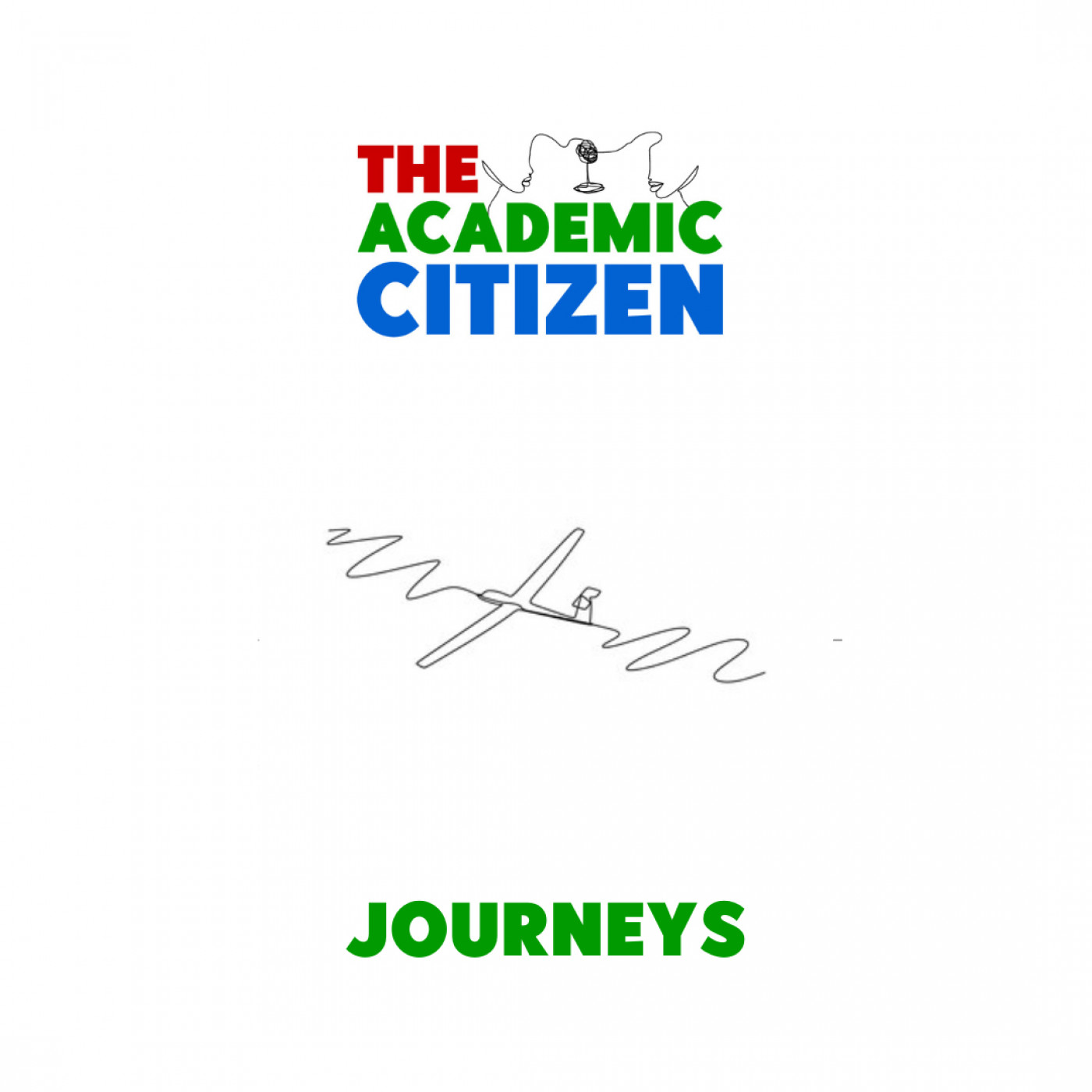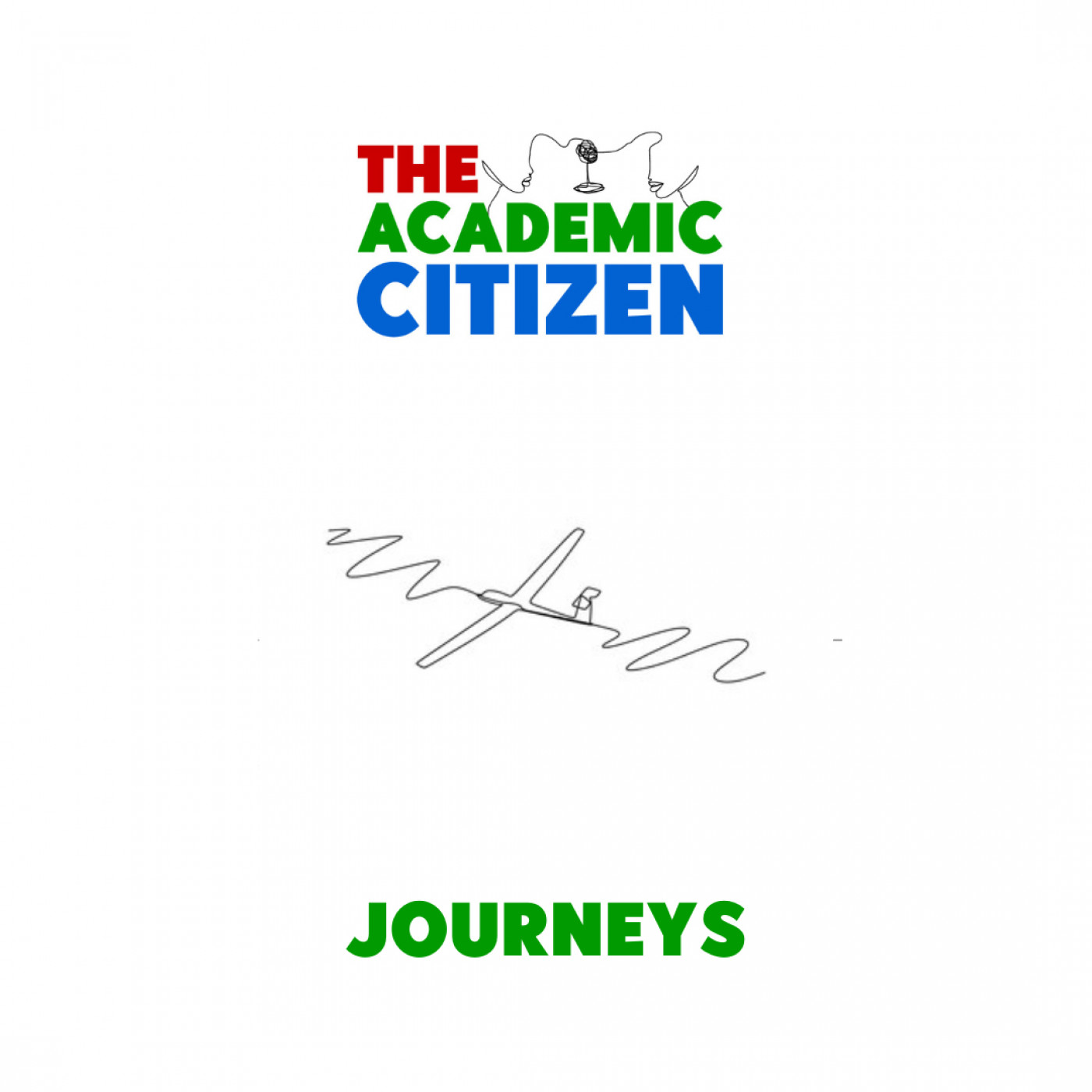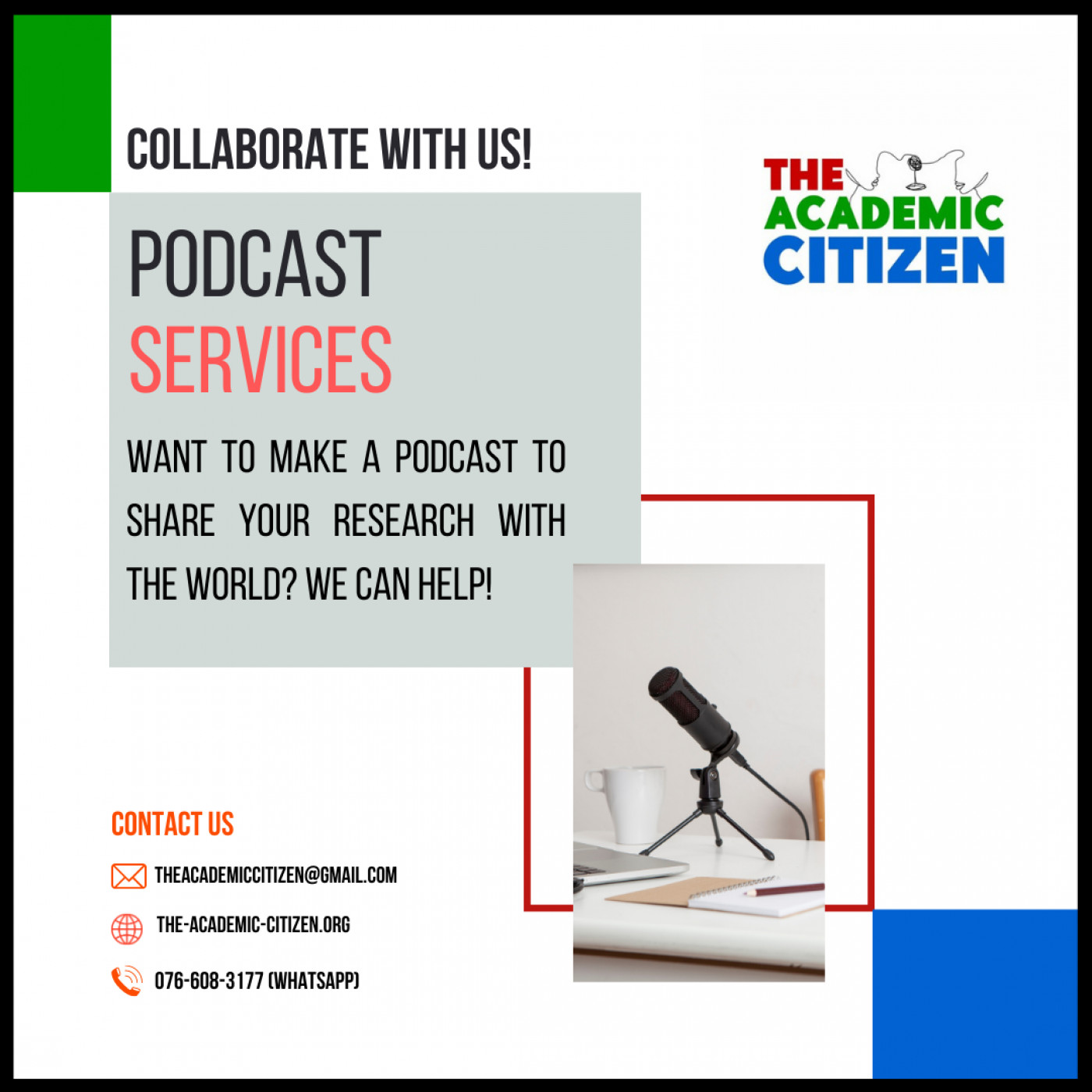Discover The Academic Citizen
The Academic Citizen

The Academic Citizen
Author: The Academic Citizen
Subscribed: 0Played: 0Subscribe
Share
© The Academic Citizen
Description
An academic citizen is anyone who is part of the higher education community. They are engaged in pedagogy or research or both, and are committed to furthering knowledge, education and the advancement of society from their disciplinary position.
An academic citizen sees their work in higher education as a public project, both in terms of being partially funded by taxpayer money, and in terms of the contributions they wish to make to the world around them.
Although citizenship implies an exclusive form of belonging, here we use it to signal the role of academic work in collective life in a non-exclusionary way, and to anchor it in a public project to which all humanity belongs.
We create knowledge not only for our individual benefit but for the benefit of all.
The Academic Citizen is an independent podcast series produced and funded in its second iteration by the South African Research Chair in Science Communication in 2022. It was originally supported by the Academic Staff Association of Wits University (ASAWU) when it was first established in 2016.
An academic citizen sees their work in higher education as a public project, both in terms of being partially funded by taxpayer money, and in terms of the contributions they wish to make to the world around them.
Although citizenship implies an exclusive form of belonging, here we use it to signal the role of academic work in collective life in a non-exclusionary way, and to anchor it in a public project to which all humanity belongs.
We create knowledge not only for our individual benefit but for the benefit of all.
The Academic Citizen is an independent podcast series produced and funded in its second iteration by the South African Research Chair in Science Communication in 2022. It was originally supported by the Academic Staff Association of Wits University (ASAWU) when it was first established in 2016.
31 Episodes
Reverse
Humans need to re-establish our connection with the Earth. In this episode, we explore the role of sound in helping us understand how waste has impacted the spaces and experiences of our planet with sociologist, filmmaker, and performer Dr. Julie Patarin-Jossen. Through feminist and queer perspectives, this episode helps us develop a new emotional relationship with the natural world, especially as we are called to protect our home, Earth. Come with us.
Similar to spoken and written language, clothing conveys important symbolic meaning and serves as a creative space for preserving daily traditions. In this episode, we highlight indigenous language and knowledge systems with independent fashion practitioner, researcher, and archivist Siviwe James. Through the use of sound, we emphasize the significance of traditional clothing as primary cultural materials, allowing for a deeper exploration of history and culture, particularly in relation to isintu and intlonipho. Listen to the episode on our website or on all streaming platforms. Come with us.
The sounds of nature can offer a unique listening experience and make us aware of our spaces and the species that exist. In this episode, we head deep into the green urban belts and wild spaces of Aoteroa with wildlife filmmaker, storyteller and host of Tune into Nature Podcast, Karthic SS. This episode guides our attention and appreciation to nature's soundscapes where listening can offer whole different modality to learning about the presence of species and growing conservation efforts. Come with us.
When we think of museums, we often envision a traditional building with objects and artefacts. In this episode, we challenge this notion with Dr. John Kannenberg from The Museum of Portable Sound. This episode delves into the concept of collecting and showcasing sound as cultural and museological heritage, offering a new perspective on traditional museum and music practices. By examining the portability of sound, this episode emphasizes that sound is an integral part of our cultural heritage and is not confined to a single space. Come with us.
Listening is dynamic, especially in recreating historical places. In this episode, we explore Willow Road in Fairview, Gqeberha with musician and sound artist Andrei Van Wyk. It focuses on using sound to evoke the lost homes and communities of Willow Road, destroyed by the Group Areas Act of 1950. By reconstructing the past through sound, this episode highlights how audio can revive aspects of lost spaces. Come with us.
What is the significance of engaging with colonial archives, which are laden with historical power imbalances and misrepresentations? In this episode, we embark on a journey through time to explore radio archives from the colonial era. Luc Marraffa, a PhD candidate at the University of Amsterdam, helps us rethink how we engage with archives and give voice to unheard narratives and non-verbal cues.
On the premiere episode of Season 7, listeners are treated to an interstellar auditory experience in the form of an audio postcard. Narrated by Sarah Kane, a PhD researcher in Astronomy from Cambridge University, this episode offers a captivating exploration into the innovative realm of data sonifications. Kane, along with her esteemed team, sheds light on groundbreaking research insights concerning the effectiveness of utilising data sonification in astronomy outreach and communication, with a specific focus on reaching audiences with visual impairments. Come with us.
[FROM THE ARCHIVE - 2018] Carina Truyts is part of the pioneers at South Africa’s newest university, Sol Plaatje University in Kimberly. She has established the Anthropology department there. Her teaching and research is focused on contextual knowledge production, sharing and engagement. Truyts’ Masters Research was on Nourishment in the 'first thousand days' in the context of precarious livelihoods in a small Cape Winelands town.
In this episode she shares with with Dr Nosipho Mngomezulu the excitement, countless opportunities and responsibilities associated with being part of this pioneering exercise. They also speak about institutional cultures and the ethical conundrums faced at such new establishments.
Produced, Edited, Researched and Scheduled by:
Simbarashe Honde
[FROM THE ARCHIVE - 2018] Dr. Beth Vale is a researcher at the Mapungubwe Institute for Strategic Reflection. She is a Mandela Rhodes and a Rhodes Scholar. Dr. Vale was a postdoctoral fellow under the NRF Chair in Local Histories, Present Realities at Wits University. Her research explored Johannesburg nightclub cultures as sites of identity, attachment and place-making. Vale’s doctoral research completed at Oxford, was an ethnographic study exploring the medication-taking practices of HIV-positive adolescents in the Eastern Cape province of South Africa. She worked as part of a mixed-methods team that worked collaboratively with government and local NGOs to inform policy and programming.
In this episode, Dr Nosipho Mngomezulu caught up with Dr Vale and they chat on youth research, intimacy, HIV and writing for the public. They also discuss effective ways of engagement, conflict and identity construction in disseminating research.
[FROM THE ARCHIVE] South African universities suffer from serious traffic congestion, lack of parking spaces and high pollution levels. Even though many staff and students aspire to own a car, arguably the bicycle offers huge potential to transform the environment and culture of campuses.
In this episode Dr Mehita Iqani and Dr Njogu Morgan, a post-doctoral researcher based at the South Research Chair in Spatial Analysis and City Planning at Wits University, discuss cycling as a lifestyle, health benefit, environmentally friendly alternative to the car. They look into the factors which kind of transport people lean towards and reasons behind the choices.
Both cycling enthusiasts, they round up a dozen reasons to leave that car in the driveway and consider the affordable bicycle as a way to get around.
Produced, edited, researched and scheduled by:
Simbarashe Honde
[FROM THE ARCHIVE - 2018] Despite policy initiatives aimed at structuring affordable low cost health care funding products, medical schemes have remained unaffordable, and therefore inaccessible, to the majority of South Africans. Universities, through insurance companies, provide medical aid with high premiums to their staff. Coupled with high tuition, international students attending South African universities also have to pay high prices for compulsory medical aid cover.
The cost of treatment in general and medicine in particular is an important barrier to health care access, with the rising cost of medicine contributing to the growing pressure on affordability. Prof Mehita Iqani had a discussion with Prof Alex van den Heever, the Chair of Social Security Systems Administration and Management Studies at the University of the Witwatersrand and adjunct professor in the Wits School of Governance, on what how medical aids in South Africa are structured and what it means for universities. Is it possible for universities to drive affordable health insurance for all staff and students?
Produced by: Simbarashe Honde
Are you interested in, passionate about or working on the possibilities of using audio to create, shape, and distribute scientific and academic research to the public? Submit a proposal/abstract for our upcoming virtual symposium "Sound Matters: Interdisciplinary Explorations Into Audio Knowledge Production" in collaboration with the South African Research Chair in Science Communication and the South African Journal of Science. To participate, submit a 300-word proposal and a 100-word bio (in one document) by 9 October 2023. We welcome suggestions for presentations of individual or collaborative contributions, panels, or showcases of audio scholarship. More info here: https://lnkd.in/dQiGY6Z4. No conference or registration fees!
[FROM THE ARCHIVE - 2018] Writing for academic journals is highly competitive. The common saying in academic circles is, “get published or perish!”
There’s no simple formula for getting published, expectations vary both between and within subject areas. But there are some challenges that will confront all academic writers regardless of their discipline. How should you respond to reviewer feedback and rejection? Is there a correct way to structure a paper? Why should I pay to get my article published? What is open access publishing and why must I pay for it?
Dr Nosipho Mngomezulu explores these above questions and more with Oscar Masinyana, the managing editor of Taylor & Francis South Africa. Taylor & Francis publishes around 70 highly regarded academic and professional journals from the region in collaboration with learned societies, institutions and co-publishers.
Researched, Edited, Produced and Scheduled by Simbarashe Honde
[FROM THE ARCHIVE - 2017] Are universities stuck in an ivory tower, cut off from day to day reality? In this episode, Prof Mehita Iqani discusses how research should and could be engaged with “communities”. The guest is University of Cape Town Associate Professor, Tanja Winkler, deputy dean of the Faculty of Engineering and the Built Environment. They speak about how universities, through scholarly work conducted in a mutually beneficial partnership between traditionally trained "experts" and members of a community, can work together for development and empowerment.
Prof Winkler agues that both parties should collaborate on an equal footing to identify problems which the communities face and work together to find solutions based on equality, and social justice.
Produced, scheduled, edited and researched by: Simbarashe Honde
[FROM THE ARCHIVE - 2017] Most universities are at the forefront of denouncing social injustices and inequality yet, in 2013 for instance the highest paid chancellor earned an annual salary of 3.2 million more than what the President of South Africa earns. These figures reflect shocking high salary discrepancies between high earners in these institutions and low earners.
Prof Mehita Iqani in this episode tackles this bone of contention amongst many in academia with Prof Rasigan Maharaj, the founding Chief Director of the Institute for Economic Research on Innovation (IERI) in the Faculty of Economics and Finance at Tshwane University of Technology (TUT). Prof Maharaj says it is not enough to only discuss minimum wage, there should be discussions on what the maximum wage should be in South African Institutions of Higher Education.
Together they also explore questions of innovation, equality, accountability, pay scales, and socially engaged scholarship.
Produced, Edited, Scheduled and Researched by Simbarashe Honde
[FROM THE ARCHIVE - 2018} In the Netherlands, a study revealed that 1 in 3 academics suffer from mental health disorder. This then begs the question if the same applies to Academics here in South Africa? If so what could be the reasons? Is mental wellness an Institutional problem? Is mental health gendered? How can academics cope?
This week’s podcast seeks to answer the above questions. Kholeka Shange caught up with Elvis Munatswa, a PhD Candidate in Psychology at Wits and had on the above issues.
Produced, Edited, Scheduled and Researched by Simbarashe Honde
[FROM THE ARCHIVE - 2018]Dr Hleze Kunju wrote his four-year-long PhD thesis in isiXhosa, about Xhosa people who settled in Mbembesi, an area outside of Bulawayo, Zimbabwe. He graduated with his PhD in April 2017 and is a lecturer at Sol Plaatjie University. Hailing from rural Mqanduli in the Eastern Cape, Dr Kunju says his love affair with the language began at a young age. An artist and intellectual Dr Hleze merges his love for language with multi-lingual pedagogy, academic rigour, and curiosity to present an expansive picture of the importance of African languages.
In this episode, Dr Nosipho Mngomezulu talks to Dr Hleze about his journey, ethnographic practice, pan-Africanism and the importance of community.
Produced, Edited, Scheduled and Researched by:
Simbarashe Honde
This episode was supported by ASAWU in 2018
In this episode, we explore three ways of understanding journeys from movement as knowledge with A/Professor Harmony Signaporia, to the ethics of flying and climate change with Dr Henri-Count Evans and to the elusiveness of nature and the wild by Dr Gabriella Leighton. Journeys is the final episode of Season 6. Come with us.
Part 2 is with Prof Mehita Iqani, Dr Henri-Count Evans and Dr Gabriella Leighton.
In this episode, we explore three ways of understanding journeys from movement as knowledge with A/Professor Harmony Siganporia, to the ethics of flying and climate change with Dr Henri-Count Evans and to the elusiveness of nature and the wild by Dr Gabriella Leighton. Journeys is the final episode of Season 6. Come with us.
Part 1 is with Prof Iqani and A/Prof Harmony Siganporia.
Are you an academic, researcher or institution or department of higher education? Do you want to make a podcast to share your research with the world? Speak to us, we can help! We are open to being commissioned from 2023.
Intro and Outro Music by The Academic Citizen
Backing Music by Music Unlimited from Pixabay
Comments
Top Podcasts
The Best New Comedy Podcast Right Now – June 2024The Best News Podcast Right Now – June 2024The Best New Business Podcast Right Now – June 2024The Best New Sports Podcast Right Now – June 2024The Best New True Crime Podcast Right Now – June 2024The Best New Joe Rogan Experience Podcast Right Now – June 20The Best New Dan Bongino Show Podcast Right Now – June 20The Best New Mark Levin Podcast – June 2024
 United States
United States

